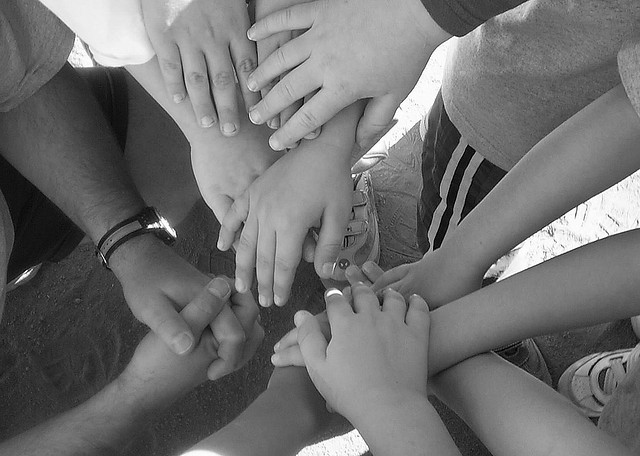“My prediction is that 2017 might just be the year of micro-volunteering and data donation, with cheap technologies allowing everyone to volunteer from home for short and sweet periods of time, no matter how much time they have to give.” NESTA
Around one in three of us volunteers in the UK. This ratio could be even higher if you include informal (and unrecorded) volunteering. Those acts involving our time, skills, expertise or just our sheer enthusiasm aren’t always measured. We gain skills, experience and we benefit from the social aspects of volunteering. Possibly many of us don’t consider this volunteering because we do it ad hoc, when it suits us fitting around our busy lives. We feel compelled to join in, with others, resulting in something we can all enjoy and often results in tangible benefits. There is a cultural mindset of doing good together through volunteering affecting our wellbeing and general health. This benefits our wider society in the UK- economically, it is valued in the billions.
While working across the country for Volunteer Makers, meeting and training museum teams who wish to build communities of volunteers – and the benefits that creates including diversity and sustainability – it never ceases to amaze me that amongst those professionals I work with, there is also a high percentage who volunteer themselves, in the areas they are interested in. Volunteering is ubiquitous and those working with volunteers often understand a volunteer’s perspective.
Museums, charities and arts organisations have come to understand at first-hand that finding volunteers (and keeping them) is challenging due to shifts in demographics – meaning those who come forward have different needs. Digital technology is key to finding and engaging volunteers, but requires a new approach. The old model of engaging volunteers – simply inviting someone to volunteer, then managing to match the volunteer with the activity isn’t scalable, it’s resource intensive, especially in the context that volunteers are often vital to the financial sustainability of organisations and numbers of volunteers need to increase.
The results of the mass movement of volunteering (a volunteer revolution you could say) in the UK is valued at over 25 billion pounds, an economic value comparable to significant UK PLC industries. Yet there isn’t a unifying UK-wide strategy and arguably the recognition that volunteering deserves. The opportunity is there for museums, arts and charities to learn from each other about harnessing the power of 21st century volunteering. It has changed, and organisations have to change to keep up.
Volunteer Makers is well placed to share such learning, from a national programme of training with our tools and frameworks evolved over the past five years. Alongside this, we have been rolling out a technology platform to support organisations with the aim of growing their volunteers in a scalable and manageable way. The crucial stage is making the step to an organisational-wide engagement culture which creates the conditions for building up a substantial community of volunteers who sustain organisations now and into the future. With many Volunteer Makers Pioneers making this step, we feel this a good point in our Arts Council England supported national programme to share the learning.
Claire Sully, Volunteer Makers Programme Director
About Volunteer Makers – a National Programme for Museums supported by Arts Council England (ACE)
Volunteer Makers is a technology-driven model for engaging audiences. For those working within Arts, Charities, Heritage and Education, Volunteer Makers is a significant and sustainable way to manage, grow and inspire volunteers by blending volunteering with public participation through effective engagement.
Digital is a driver, as technology has the capacity to bring people together, gamifying engagement and rewarding and creating a value exchange for the organisation and for the volunteer. Each week, millions of people come together to run around parks across the world. These Park Runs use of technology to gamify the experience of coming together to run has a similar underlying principle to Volunteer Makers.
It is necessary for museums to find a new model to engage volunteers because the current traditional model is not sustainable. Shifts in demographics; digital transforming how organisations reach and maintain relationships with volunteers; and the need to find sustainable financial models driven by added value from volunteers are the impetuses for the new model.
Museums recognise that to be sustainable they must take an organisation-wide approach to creating an engagement culture e.g. engaging volunteers goes beyond the volunteer co-ordination/management function.
This is a museum-led idea that will have a wider impact on other sectors including libraries, arts, charities, communities and health. The museums themselves have called it Blended Volunteering – blending your volunteering with public participation, marketing and digital. Seeing volunteering beyond traditional roles, blending regular volunteering with micro-volunteering. Seeing your audience as supporter as visitor and volunteer.
Overall Aims of the ACE Volunteer Makers National Programme for Museums:
– Inspire and support museums to maximise impact of their engagement with volunteers.
– Encourage leadership and workforce in museums to be creative and highly skilled in their strategic volunteer engagement thinking.
– Introduce a model of sustainable volunteering leading to cultural transformation in resilience, fundraising and volunteer diversity.
– Provide training tools, a volunteer engagement-planning framework and digital technology to support volunteer activity going forward.
Learning from Volunteer Makers – a national conference in 2017
Volunteer Makers national conference is a fringe conference on November 17th, 2017, part of Museums Association Conference at Manchester Central Convention Centre. The conference is called: Pioneering Volunteering Makers
– A new era for engaging audiences.
A third of people in the UK are volunteering and the value of volunteering is worth billions. With shifts in demographics, digital and funding models a new way of thinking is necessary if museums are to engage volunteers in a way to sustain and diversify their audiences.
This is a chance for museums to further participate in Volunteer Makers and understand the benefits of Blended and Micro-Volunteering and how this affects the workforce now and into the future.
The Volunteer Makers conference will hear from the museums themselves who are pioneering Volunteering Makers and the steps they have taken to create an organisational-wide engagement culture and implement new thinking in volunteer engagement. If you wish to attend the conference, please get in touch.
Testimonials
‘We know that people still want to give their time to volunteer, but also that that time needs to give something back. Museums need to offer more than just operations or events. They need to offer support, interaction and sustainability across the range of their activities. Volunteer Makers offers an intelligent answer to this problem. The app in particular not only makes it easier for people to find out how they can help, but addresses their interests or availability so that everybody wins. It’s volunteering for the modern world. And it’s going to have massive benefits in communities across the country’.
John Orna-Ornstein, previous Director of Museums, ACE
‘The implementation of a more publicly engaged volunteer strategy is already taking root. The strategy is being formulated by the Visitor and Volunteer Officer in collaboration with relevant colleagues and seeks to create a more joined up approach by utilising the Marketing and Engagement Team. For instance, one recent press released asked visitors ‘Can you help Chelmsford Museum’s search for Florence Attridge?’ and asked residents to respond with any information regarding a recent Museum acquisition of a British Empire Medal (civil division), which was awarded in 1946 to Florence Attridge of Chelmsford for services as head of the winding shop at Marconi’s New Street Factory during WWII. This initiative came after two members of the museum staff attended the Volunteer Makers London and South-East Seminar, which has caused the Museum to reassess its perception of the role of volunteers in the museum. We now recognise that a volunteer is not only someone who gives one day a week to help with regular activities, but can be anyone who gives their time – however small – to help with museum projects, promotion and engagement’.
Will Boisseau, Chelmsford Museum
‘Everyone was buzzing and excited after the session, and I can honestly say I have never had such heart felt positive feedback about a change of system before!’
Jessica Hartshorn, Rugby Art Gallery and Museum
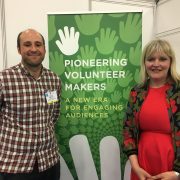 David Juler, of the Museum of Oxford, explained how his organisation had been working with Volunteer Makers, and as a Volunteer Makers pioneer, they help shape the platform’s development. It’s a collaborative effort, with Tickbox actively seeking users’ feedback.
David Juler, of the Museum of Oxford, explained how his organisation had been working with Volunteer Makers, and as a Volunteer Makers pioneer, they help shape the platform’s development. It’s a collaborative effort, with Tickbox actively seeking users’ feedback.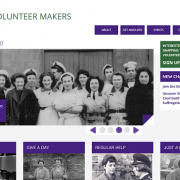








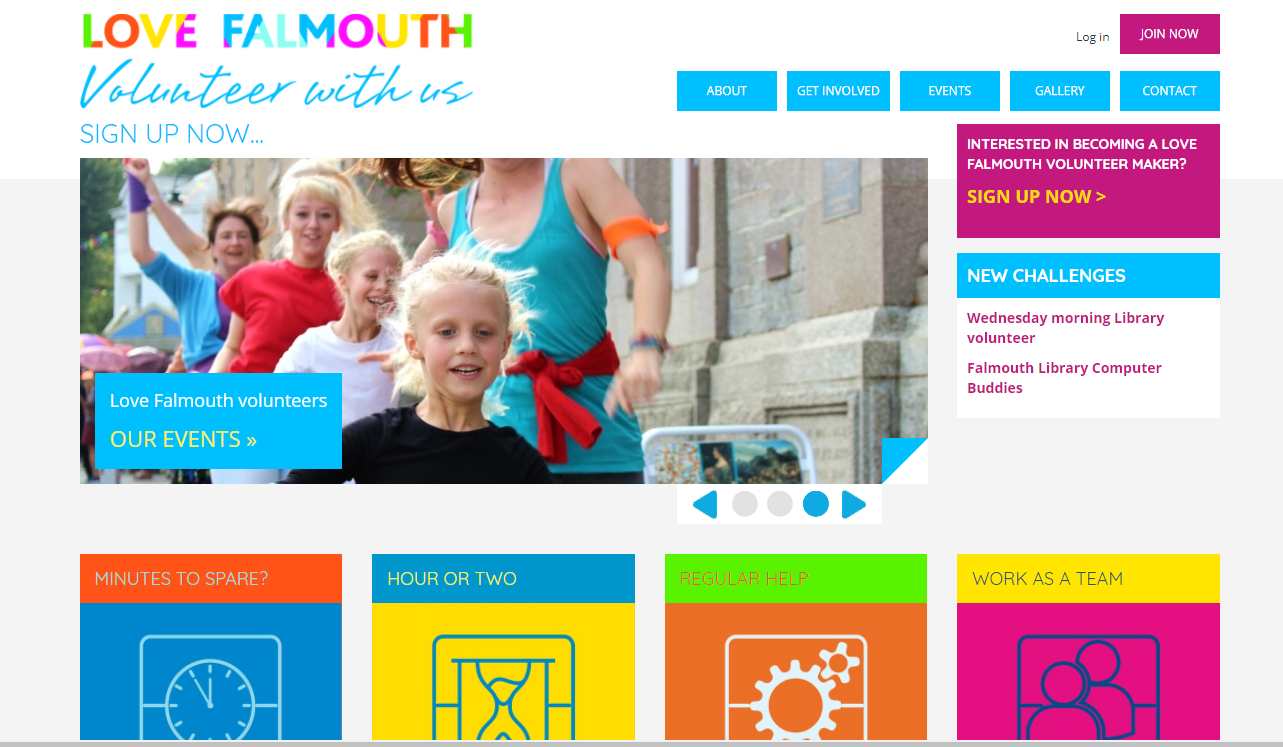 Volunteer Makers is becoming used to getting great feedback from partner organisations and users, but it is always pleasing to be recognised by external judges.
Volunteer Makers is becoming used to getting great feedback from partner organisations and users, but it is always pleasing to be recognised by external judges.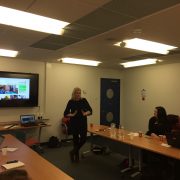
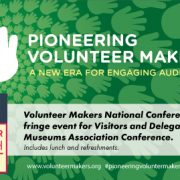
 Digital and social media makes it easy for volunteers to actively engage with their favourite museums, arts organisations and charities, while many more people are prepared to give short bursts of time rather than a longer term commitment to volunteering. Put the two together (digital and short bursts of volunteering activity) you have the rise of micro-volunteering.
Digital and social media makes it easy for volunteers to actively engage with their favourite museums, arts organisations and charities, while many more people are prepared to give short bursts of time rather than a longer term commitment to volunteering. Put the two together (digital and short bursts of volunteering activity) you have the rise of micro-volunteering.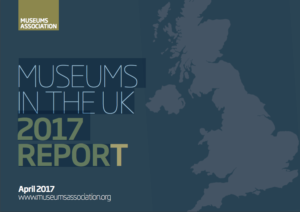 A major report into the state of the museum sector shows mixed picture of rising visitor numbers but falling funding – with a shifting relationship between museums and their audiences, the digital revolution and a move towards socially-engaged practice shaping the sector’s future.
A major report into the state of the museum sector shows mixed picture of rising visitor numbers but falling funding – with a shifting relationship between museums and their audiences, the digital revolution and a move towards socially-engaged practice shaping the sector’s future.